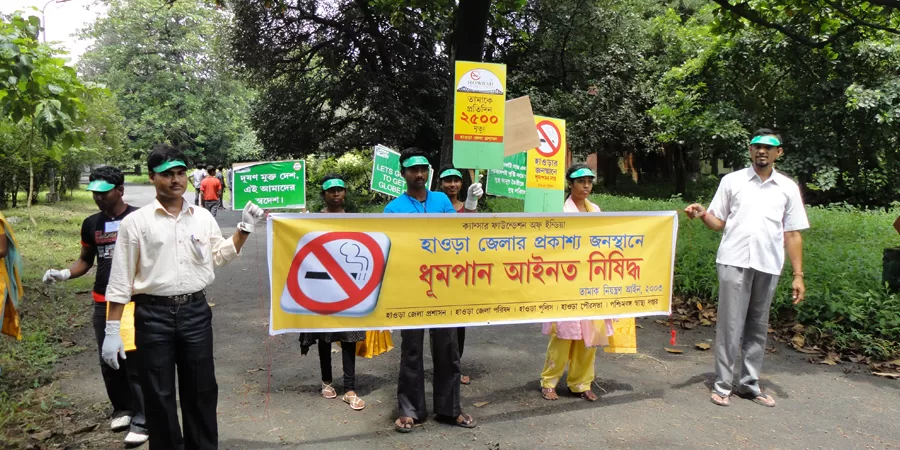CANCER FOUNDATION OF INDIA
Development of a Civil Society Action Model to Implement & Sustain Smoke-Free Rules in the District of Howrah in West Bengal (India)
India has well-defined Tobacco control law (Cigarettes & Other Tobacco Products Act, 2003) to restrict the use of tobacco in the country. One of the provisions of the law also prohibits Smoking in Public places (Prohibition of Smoking in Public Places Rules, 2008). However, this law has not been implemented uniformly around the country hence there is a need to develop Smoke-free initiatives tailor-made to specific settings. Creation of Smoke-free places is a successful approach to reduce the harmful effects of second hand smoke but in India it had limited success. In India, most attempts for smoke-free have been focused towards urban areas and increasingly a need is felt to create smoke-free rural districts.
This project proposes to develop a replicable model by implementing the Smoke-free laws in Howrah district of West Bengal towards making it Smoke-free by 2012. This initiative will lead to the development of a customized smoke-free model which would provide the necessary inputs for addressing the challenges faced in making the districts of India smoke-free.

Target population:
Howrah District population.
Supported
by:
Bloomberg Initiative to Reduce Tobacco Use, USA.
Period:
2010 – 2012.
Investigator / Coordinator:
Sutapa Biswas and Soma Roy Chowdhury.

